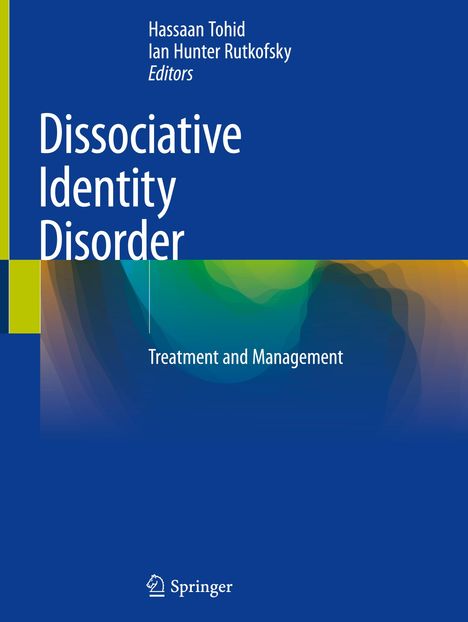Dissociative Identity Disorder
Dissociative Identity Disorder
Buch
- Treatment and Management
- Herausgeber: Ian Hunter Rutkofsky, Hassaan Tohid
lieferbar innerhalb 2-3 Wochen
(soweit verfügbar beim Lieferanten)
(soweit verfügbar beim Lieferanten)
EUR 213,34*
Verlängerter Rückgabezeitraum bis 31. Januar 2025
Alle zur Rückgabe berechtigten Produkte, die zwischen dem 1. bis 31. Dezember 2024 gekauft wurden, können bis zum 31. Januar 2025 zurückgegeben werden.
- Springer International Publishing, 01/2024
- Einband: Gebunden, HC runder Rücken kaschiert
- Sprache: Englisch
- ISBN-13: 9783031398537
- Bestellnummer: 11739962
- Umfang: 324 Seiten
- Nummer der Auflage: 24001
- Auflage: 1st ed. 2023
- Gewicht: 1141 g
- Maße: 285 x 215 mm
- Stärke: 22 mm
- Erscheinungstermin: 20.1.2024
Achtung: Artikel ist nicht in deutscher Sprache!
Klappentext
This book contains new evidence and more ideas for treatment and management of dissociative identity disorder (DID). It is written from the standpoint of an expert in the field for other professionals that deal with or are interested in DID.Chapters are divided into 4 parts. Part 1 acts as an introduction to understanding dissociative identity disorder, such its history, the different types of the disorder, and its portrayal in popular culture. The chapters in this part cover multiple personality disorder, theories, and epidemiology of the disease. Part 2 discusses the pathology and neuroscience of the disease. The comorbidities related to the disorder will be explained, such as PTSD, depression, anxiety, schizophrenia, and more. This part concludes with the potential causes of dissociative identity disorder, which ties into the previously mentioned comorbidities throughout this part. Supplementing the aforementioned topics, Part 3 discusses management of the disease. The chapters will cover modern psychiatry, diagnosis, and treatment options. Drug treatment and psychotherapy are some examples of the treatment options available. The authors share their experiences and perspectives of managing DID, including clinical trials and recovery. Finally, Part 4 discusses the sociology of DID, such as potential drug abuse, social media presence, and the difficulties that psychiatrists face in diagnosing the disease. This part provides advice for clinicians and healthcare providers by sharing different perspectives from psychiatrists that encounter the disease.
Written by experts in the field, Dissociative Identity Disorder serves as a valuable resource for psychiatrists and clinicians seeking to understand, treat, and manage the disease.

Dissociative Identity Disorder
EUR 213,34*

